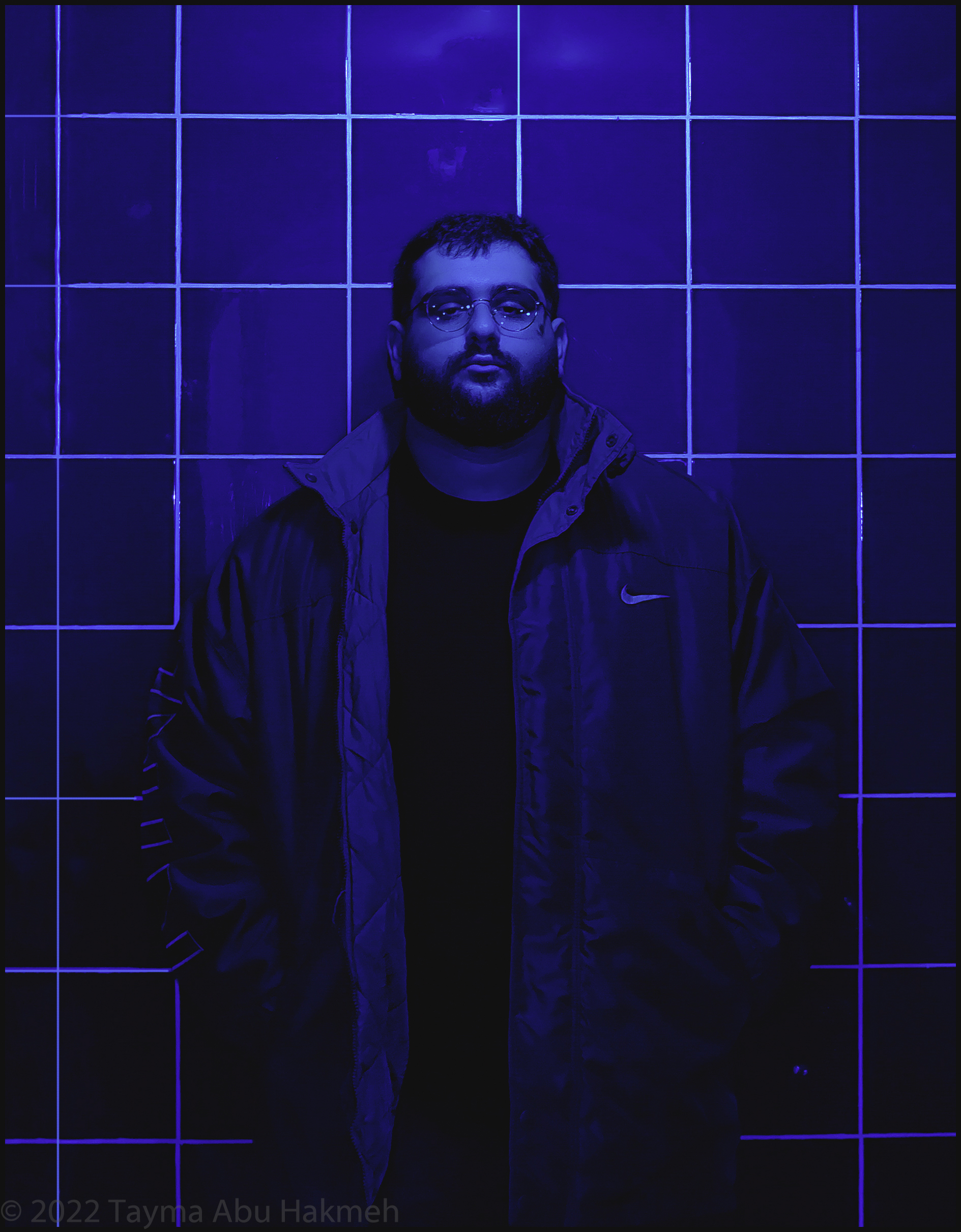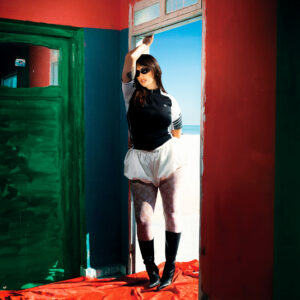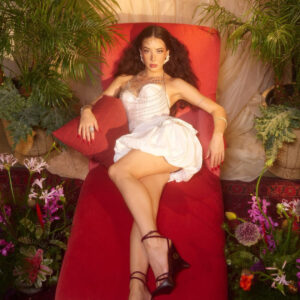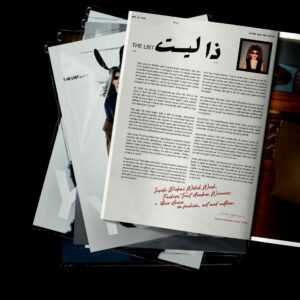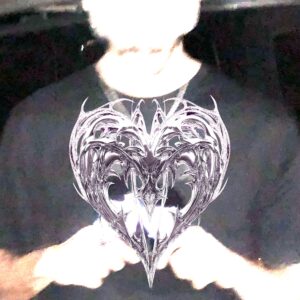Jordanian producer and musician, Toumba (Instagram), better known as Yazan Zyadat, is carving out a unique space in the world of club music, crafting a signature style that infuses the intricate rhythms, microtonal scales, and sounds found in music from across the Middle East. The sound is a blend of Western elements such as breakbeats and basslines found in UK dance music, but with a twist inspired by his Middle Eastern roots. It’s a sound that may initially sound foreign to the uninitiated, but the melodies and rhythms will be easily recognizable to anyone from the region.
Rather than copying traditional music, however, Toumba seeks to dissect it, take it further, and give it a life of its own. His music is rich in traditional Arabic musical elements such as the maqam modal system and percussive influences from the tablah drums, which he weaves seamlessly into his tracks. His approach to integrating these sounds into contemporary club music is not to simply include the sounds and motifs, but to apply the rules and methodologies that led to the creation of these sounds in a more contemporary context with modern sound design tools.
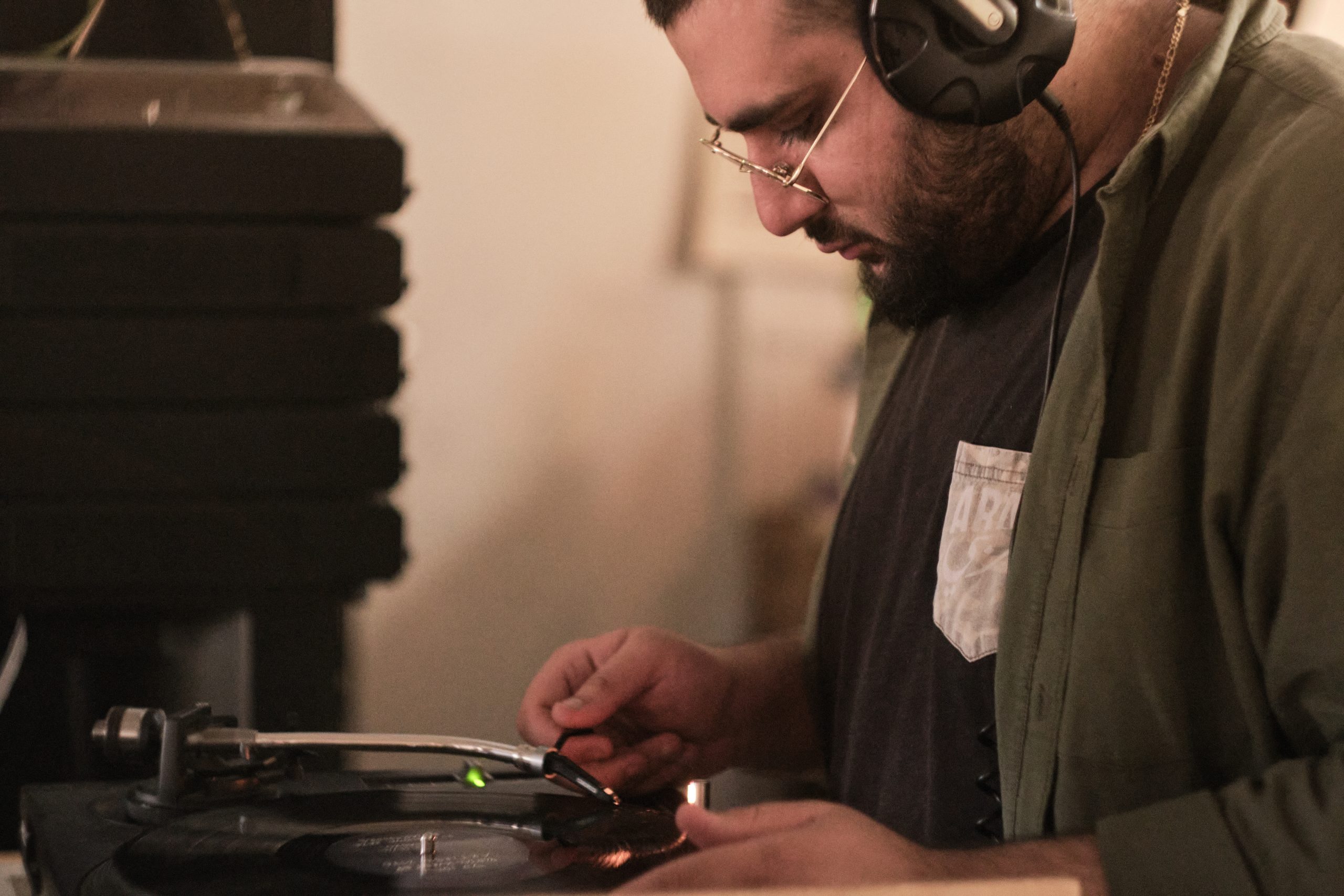
Toumba’s journey began at eight years old when he started playing guitar and studying music theory, building a strong foundation that would later help him in his music production. However, his signature sound developed through countless hours of trial and error and active listening to music. Toumba emphasized the importance of training your ears and knowing yourself, a process that ultimately led him to create his own unique sound palate.
Over the last three years, Toumba has released two EPs for London-based labels All Centre and Hypnic Jerks, as well as a few self-released tracks and edits. His latest EP, Petals, is his most high-profile project to date, released by the popular underground label, Hessle Audio. His evolution in sound design over the years is a reflection of his increasingly refined abilities, having moved from sample-oriented production to creating almost all the elements in his tracks.
However, Zyadat’s ambitions go beyond his own creative work. He is a key member of Amman’s club and arts space, MNFA, where he works as a curator to showcase the work of Jordan’s creative scene. Toumba believes that artists from the MENA region are creating a new cultural identity that is unique and nuanced. The artists that shaped the MENA region’s cultural identity did not act to preserve anything; they created something new, and he believes that it is essential to pay homage to the region’s lived experience. This entails acknowledging and preserving integral parts of the region’s culture while creating something fresh and new.
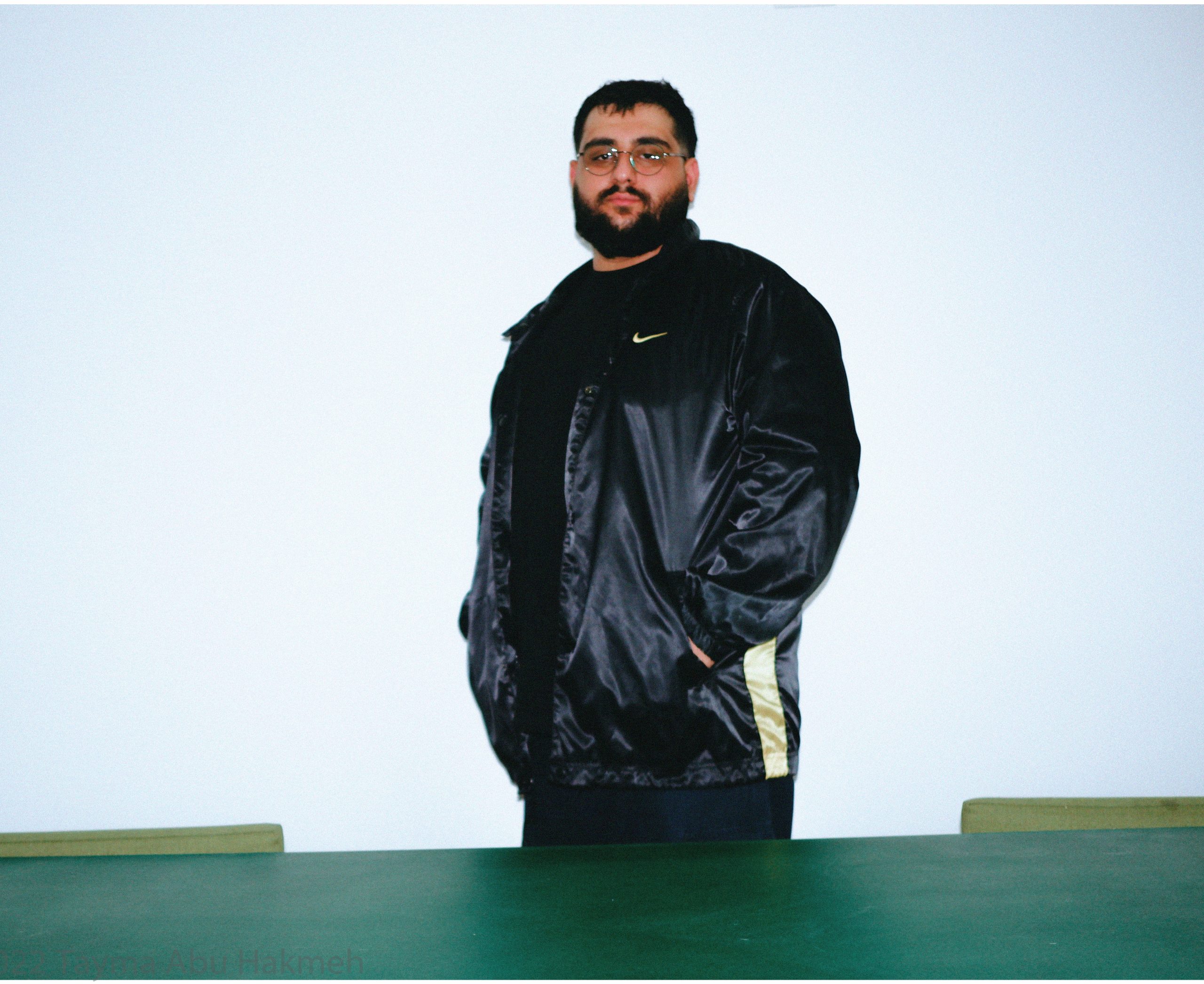
Hot on the heels of his whirlwind tour through Europe, where he played a stellar set at the legendary CTM Festival, Toumba brought his signature sound to Egypt yesterday, performing alongside Amman’s Big Murk at one of Cairo-based party organizer JellyZone’s electric underground raves.
As for what’s next for Toumba, he has some new music coming later this year that expands on the ideas presented in the Petals EP, and he hopes to debut a live show this summer.
We sat down with the Jordanian producer and DJ to map out his journey through the world of electronic music, unravel his creative process and get some personal insights on his experience performing in both his home country and abroad.
Can you discuss your musical background and how you developed your signature sound?
I’ve studied music theory and played guitar since I was eight years old so I have a pretty strong foundation and it definitely made some aspects of making music nowadays easier. However, my signature sound came from hours of trial and error and actively listening to music while really thinking about what I like and why I like it; it’s mostly training your ears and knowing yourself.
How does your personal cultural identity inform the thematic elements of your musical narrative?
Having lived in Jordan my whole life, I’m very strongly inclined to make music that reflects that and not just makes a copy of whatever I’m influenced by. I’m also wary of being too in-you-face with it, because although I want to pay homage to my upbringing and my cultural identity, I’m also not nostalgic towards it, nor do I just want to replicate it; I want to dissect it, take it further and make it mine.
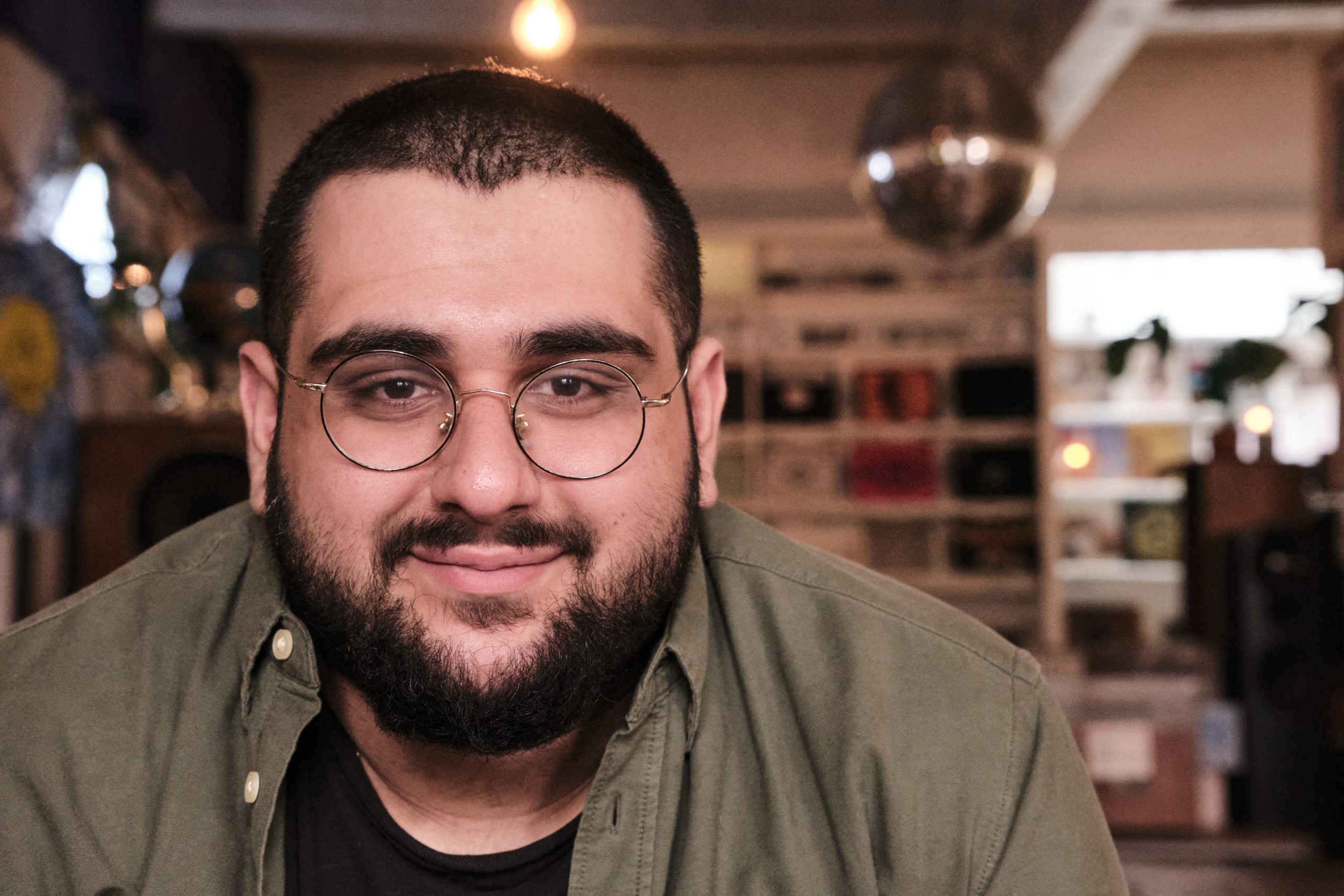
Your debut release “Sabah Fakhri/Tidallal” was juke-oriented, what inspired you to move towards a more synthesized sound with your latest EP “Petals”? How has your music production process evolved between these two points?
I was much more sample-oriented when I made Sabah Fakhri & Tidallal because I wasn’t as skillful as I am today with sound design, so it was just an easier way for me to materialize my ideas. Nowadays I’m more inclined to create almost all of the elements in my songs to develop a signature sound palate.
How do you integrate these traditional musical elements into a contemporary context?
The goal for me is not to integrate the sounds or motifs themselves into the music, but [to] apply the rules and methodologies that led to the creation of these traditional sounds to a more modern context with modern sound design tools and see what comes out of it.
In your tracks, we can hear elements of the Arabic maqam modal system and percussive influences from tablah drums. Can you elaborate on the role that traditional music plays in shaping your approach to club music?
I draw most of my inspiration for my music from traditional Levantine music, so it’s expected to find these elements in the music I made. However, as I release more music these influences are gonna’ be integrated in a much more abstract way.
Can you shed light on the local music scene in Jordan, and how it has evolved over time to accommodate and provide spaces for specific genres of music?
The music scene in Jordan is very small, but there is no specific genre that people are more inclined to produce and everyone supports each other in whatever music endeavor they decide to embark on, which is very healthy. I think as more people get into making music there will be more genre-specific communities, but for now it’s just an underground music community where everyone feeds off of each other’s support.
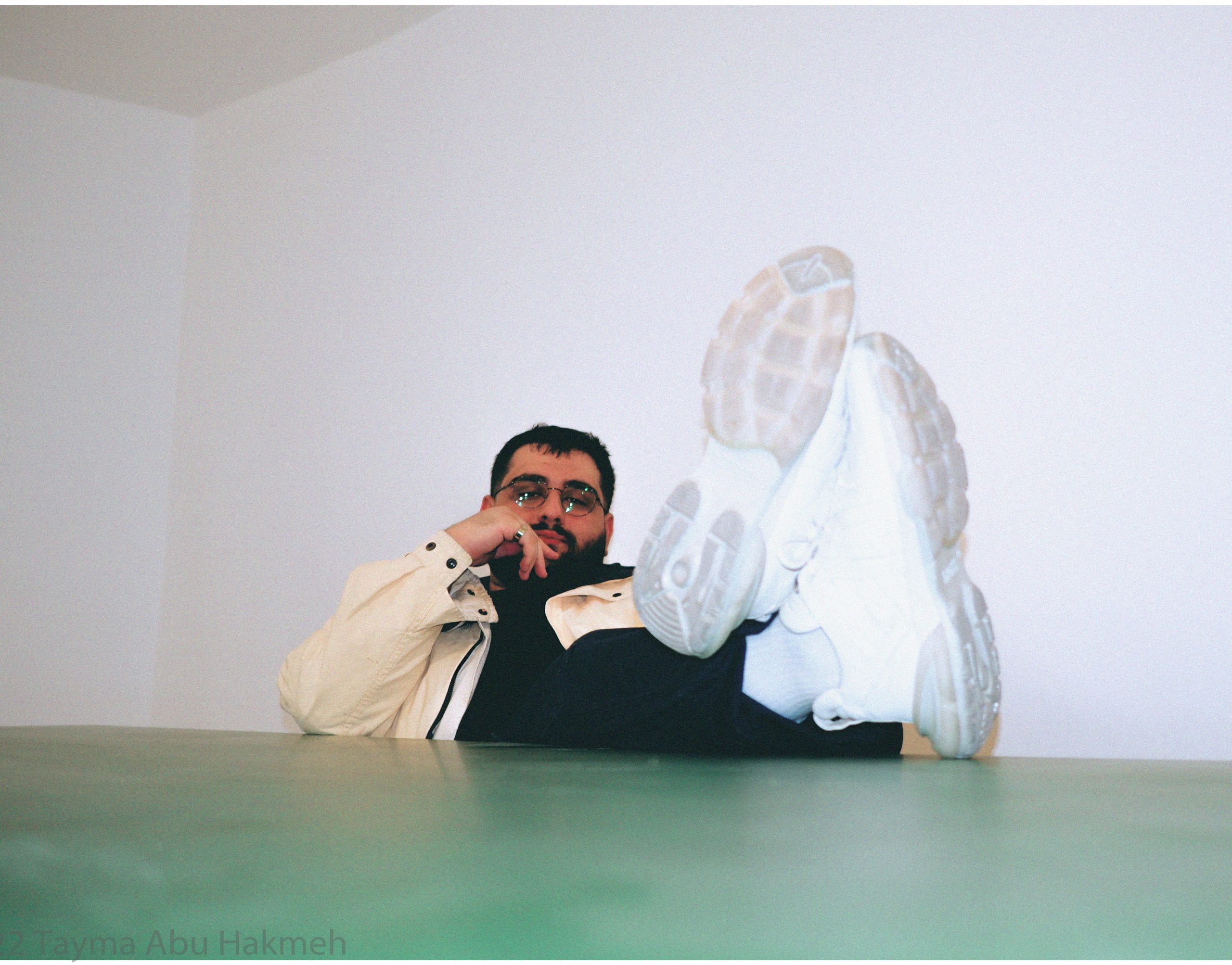
How does the unique environment of MNFA, being underground with limited connectivity, impact the music experience for both the performers and attendees?
It definitely puts you more in the moment and engages people more with the music that is being played. It’s absolutely wonderful.
From your perspective, what role do producers and DJs play in curating and perpetuating cultural identities within the MENA region?
First of all, within the MENA region, there is huge diversity in cultural identities so it’s a much more nuanced thing than it seems. However, I think a new cultural identity is being created by creatives from the region and there is no blueprint on how they should do it. For me personally, it is important to pay homage to my lived experience, being from the region, but that’s a personal choice. The artists who shaped what we think of as our cultural identity did not act in a way to preserve anything, they created something new and I think that’s what we should be doing instead of living in nostalgia. Of course, with that being said, there are integral parts of our culture that make us who we are which we should always acknowledge and preserve.
How did your performance at CTM Festival turn out? What do you think sets the music scene in Jordan apart from others, and how did you aim to showcase that at the festival?
The performance was amazing! The reception was much better than I thought [it would be] and it was really fun. The crowd in Amman is very receptive to whatever you throw at it, so I tend to go all over the place when it comes to genres and that was really evident in my set at CTM.
Can you give us a sneak peek into what’s next for Toumba? Any upcoming projects or plans for the near future?
I have some new music coming later this year and I’m hopefully debuting a live show this summer!
Check out more of our music coverage from across the region here.
